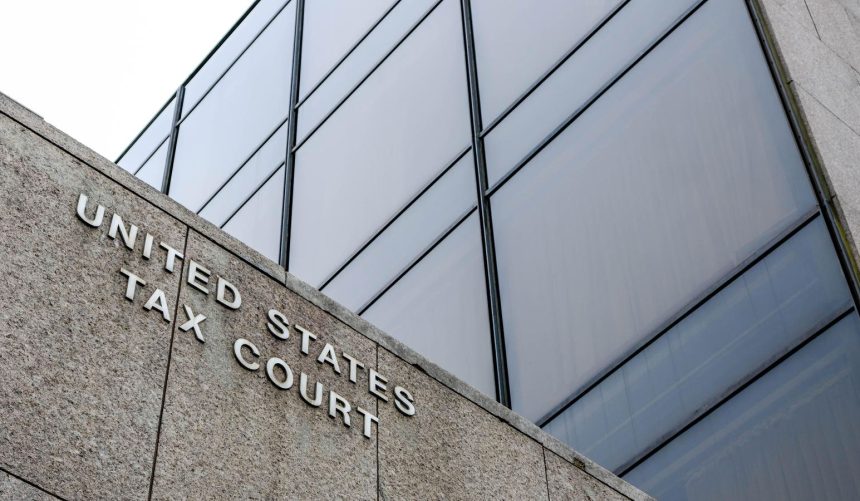In tax cases, sometimes procedure alone wins the day. In SN Worthington Holdings LLC v. Comm’r, 162 T.C. No. 10 (May 22, 2024), a partnership made an election to have its audit conducted under the new Bipartisan Budget Act of 2015 (BBA) partnership audit rules. However, the IRS refused to recognize the election and examined the partnership under the old Tax Equity and Fiscal Responsibility Act of 1982 (TEFRA) partnership audit rules. At Tax Court, the partnership sought to have the case thrown out on procedural grounds. And the court agreed, granting the partnership’s motion to dismiss.
TEFRA Versus BBA
To understand the dispute in SN Worthington Holdings, LLC, it is important to have familiarity with TEFRA and the BBA. In 1982, Congress passed the TEFRA partnership audit rules. Prior to TEFRA, the IRS was required to examine the partners of partnerships rather than the partnership itself, which proved inefficient and time-consuming. After TEFRA, the agency was authorized to conduct partnership audits and to make adjustments at the partnership level. Generally, these partnership-level adjustments flowed through to the partners who were ultimately responsible for their share of the corresponding taxes.
The TEFRA rules ultimately did not solve all of the inefficiencies with partnership audits. Accordingly, Congress enacted the BBA partnership audit rules in 2015. Under these new rules, the IRS may conduct a partnership examination at the partnership level (similar to TEFRA)—in addition, though, the agency may also make an assessment (known as an imputed underpayment) and collect on the imputed underpayment directly from the partnership. Very different audit procedures apply under the BBA as compared to TEFRA.
Although Congress passed the BBA in 2015, it also provided a grace period in that the BBA rules would not apply until the 2018 tax year. Thus, the TEFRA rules continued to govern partnership examinations until the 2018 tax year, with one caveat: partnerships could elect early into the BBA partnership audit rules if a timely and valid election was made.
Background
SN Worthington filed a 2016 partnership tax return. After the IRS selected the return for examination, the partnership made a timely election to have the BBA partnership audit rules apply. As it was required to do under the election, SN Worthington represented that it had sufficient assets to pay an imputed underpayment if the IRS later determined that one was due.
The IRS reviewed the election and SN Worthington’s 2016 tax return. On the basis of this review, it concluded that the partnership did not have sufficient assets to pay an imputed underpayment and provided the partnership with an opportunity to dispute the determination. SN Worthington chose not to, and the agency notified the partnership that its election was invalid. The IRS then proceeded to conduct the examination under the old TEFRA rules.
SN Worthington raised the issue later in the examination, but the IRS effectively ignored it. At the conclusion of the audit, the IRS issued a Final Partnership Administrative Adjustment (FPAA) under the old TEFRA rules. The FPAA determined that adjustments should be made to the partnership’s 2016 return. SN Worthington filed a timely petition with the Tax Court and thereafter filed a motion to dismiss on the basis that the FPAA was invalid.
Tax Court’s Decision
The Tax Court held that SN Worthington’s BBA election was valid. According to the court, an election is valid when taxpayers comply with the plain text governing the election. And after a taxpayer makes an election, the IRS is prohibited from requiring the taxpayer to satisfy additional conditions.
Here, SN Worthington complied with the regulatory requirement to make a BBA election. Specifically, the partnership represented that it had sufficient assets to satisfy an imputed underpayment. The Tax Court found that the representation was all that was required under the plain text of the governing regulation.
In holding in favor of the partnership, the court squarely rejected the IRS’ argument that SN Worthington was required to actually show that it could satisfy the imputed underpayment. To the extent the agency had concerns that taxpayers could make false representations, the court reminded the IRS of the criminal sanctions available under section 7206(1), which make it illegal for taxpayers to willfully make false statements. In addition, the court noted that the BBA permitted the agency to go after partners of a BBA partnership if the partnership was unable to satisfy the imputed underpayment.
The Tax Court also concluded that any mistake in the election was attributable to the IRS. If there is an ambiguity in a regulatory requirement for making an election, any doubts should be interpreted against the drafter (here, Treasury). If the government had desired to have a requirement for showing a partnership’s ability to pay, it should have simply written that requirement into the regulation. It did not.
Summary
As SN Worthington Holdings, LLC shows, sometimes the best defense to an IRS adjustment is not arguing the merits but instead fighting the adjustment on procedural grounds. Because the BBA partnership audit rules are fairly new and open to interpretation, taxpayers should expect more BBA procedural disputes in the near future.
Read the full article here
















